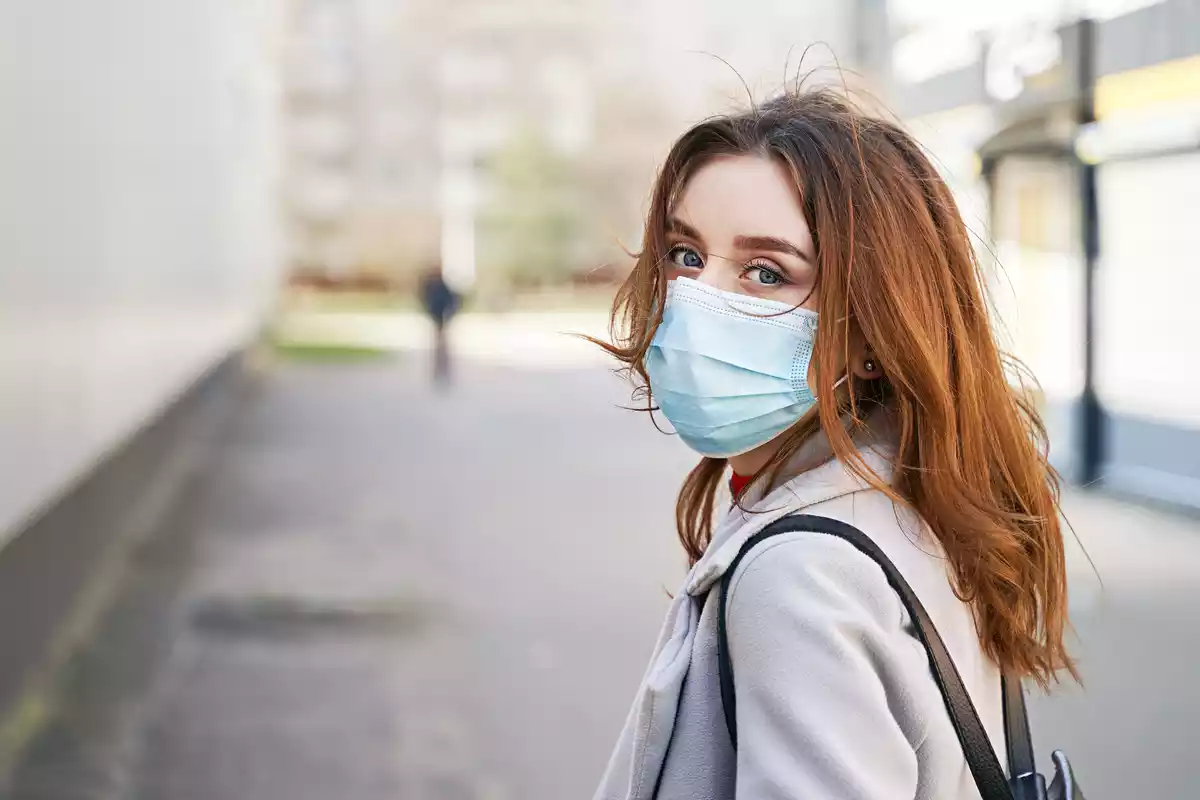
The mask has become an indispensable element in people's lives for months now. Despite the start of the vaccination campaigns, everything points to the fact that we will still have to use them for some more time because the virus is still very present all over the planet.
This accessory will continue to be mandatory for the rest of the year and will even have to be worn in 2022 to leave home. However, those who are already immunized are wondering why they should continue to use it.
As recently published by the British media The Guardian, vaccines protect people against COVID-19, although this does not mean that they cannot continue to infect people, even if they are asymptomatic to the virus.
For this reason, it is important that people continue to use it, especially to avoid a spike in cases while others wait for their turn to be vaccinated. This would also help hospitals, which have had a very difficult time since the pandemic started.
"We now know that vaccines can protect, but what we haven't had enough time to really understand is: does it protect against the spread," says Avery August, professor of Immunology at Cornell University in the United States.
The truth is that there are still a lot of questions regarding the vaccine since it is not known how the doses can protect against asymptomatic transmission of coronavirus, nor how long the vaccines can protect us against the virus.
With the emergence of so many COVID-19 strains, it is vitally important to know how these variants affect the effectiveness of vaccines, especially the South African variant, B1351, which even reduced the efficacy of the Johnson & Johnson vaccine.
Many people wonder what is the point of getting vaccinated if the mask and social distancing are still necessary to avoid direct contact with people and thus an increase in contagion. For this last reason, it is necessary that some of these rules remain present until much more progress is made in the vaccination process.
Vaccination campaign
It is not easy for a vaccine to provide complete protection against a virus. In fact, few vaccines in history have been able to do so.
Nevertheless, research on these doses against COVID-19 gives hope by highlighting the degree to which vaccines protect against transmission with promising, albeit incomplete, results. The bottom line is that it reduces transmission and, that alone, would make a huge change in today's society, which could thus cope with a 'new normalcy'.
"We'll probably know as more and more people get vaccinated, somewhere in mid-September," says Avery August, recalling that a vaccine need not exhibit complete pandemic-fighting efficacy. "If everyone is vaccinated, there will be less virus," he added hopefully.
"Hopefully we can vaccinate the majority of the population," says Dr. Bruce Y. Lee, professor of health policy at the School of Public Health from the City University of New York. "That's when we can start talking about moving towards normalcy," he adds.
Only then will it be possible to consider the option of putting away the face masks to leave the house and recovering some of the customs that are so much missed in these turbulent times in which the world is living.
[This is a translation of the original article: "Los científicos revelan cuándo podrás quitarte la mascarilla si ya te has vacunado" published in espanadiario.net]

